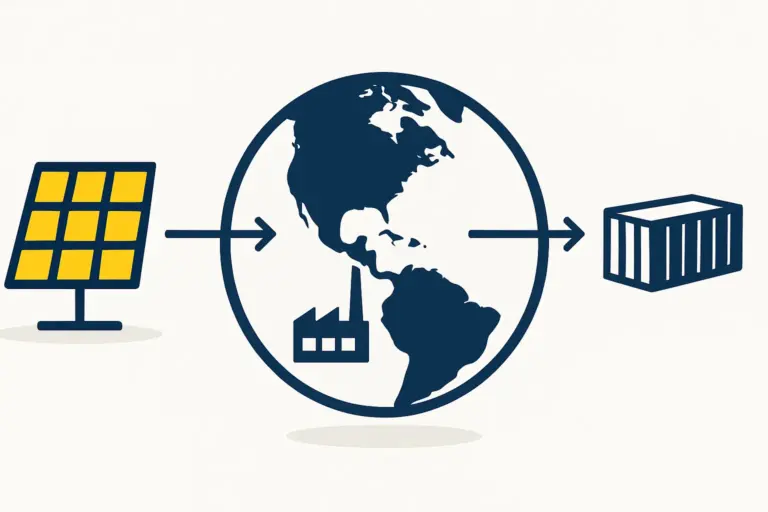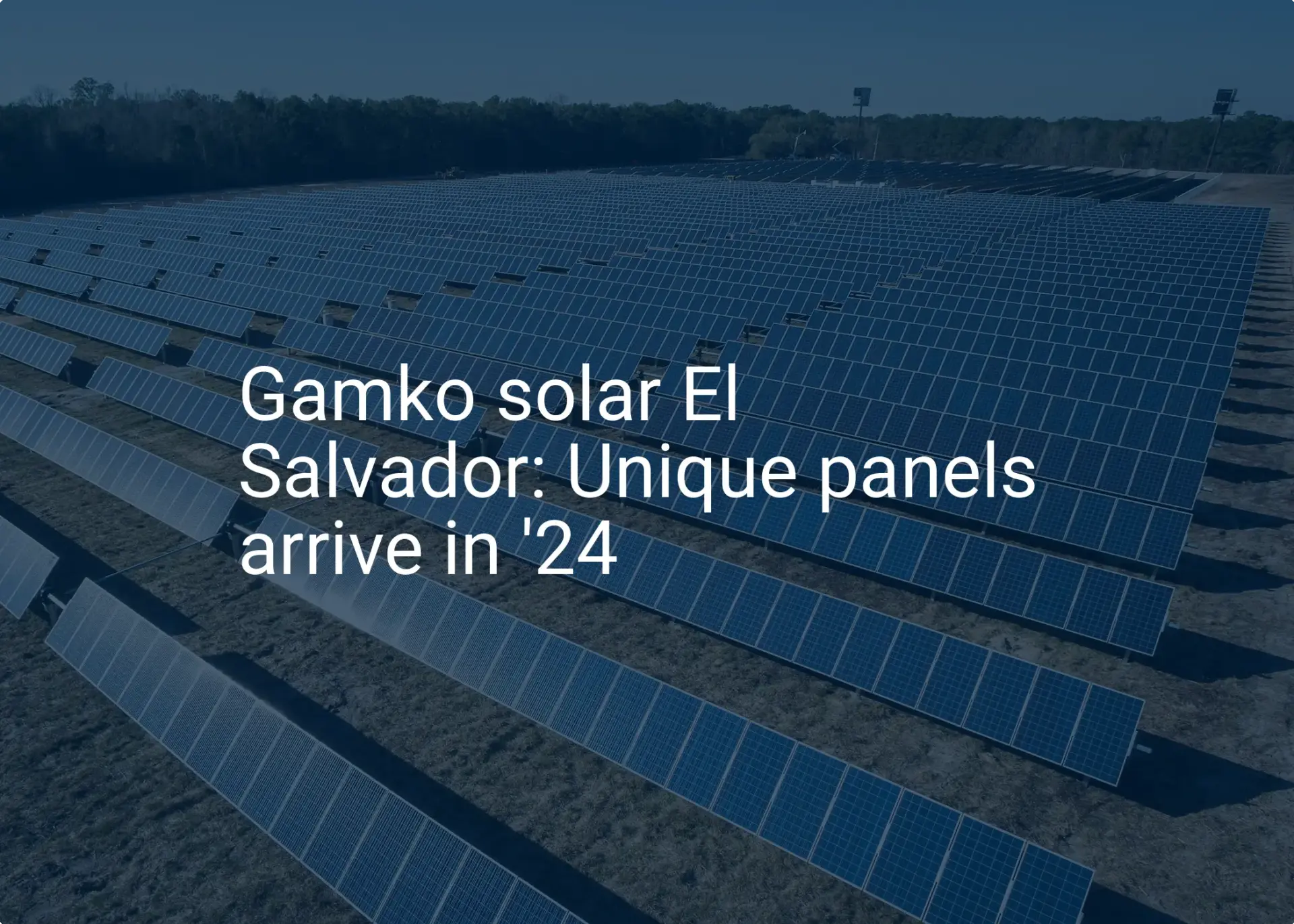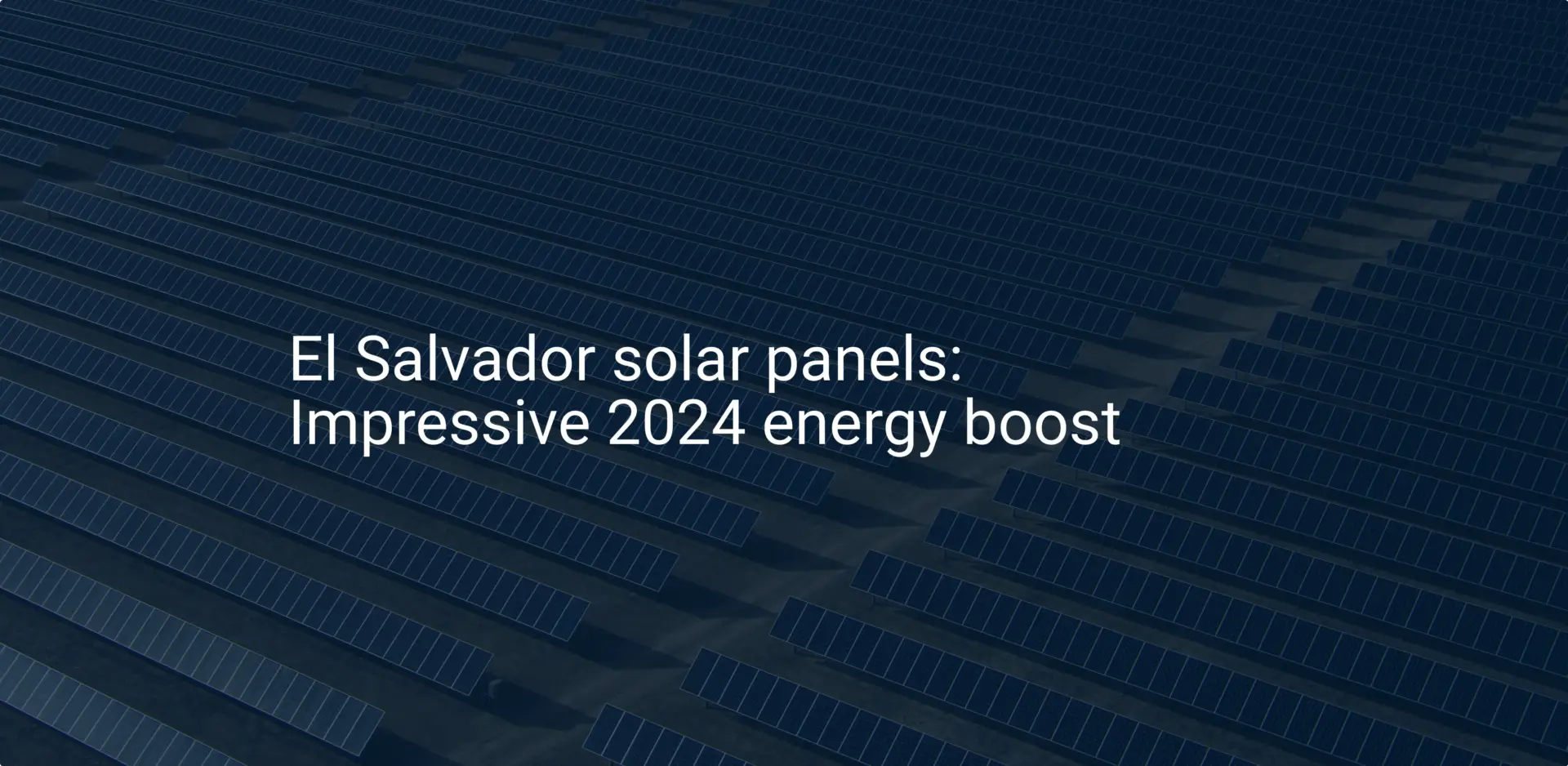International entrepreneurs exploring new markets for solar manufacturing often face a complex web of taxes, import duties, and unpredictable regulatory costs. These factors can obscure the true return on investment and deter otherwise viable projects.
In response, El Salvador has introduced significant legislation designed to create one of the most financially attractive environments for technology manufacturing in the Americas. This article provides a detailed analysis of El Salvador’s Law for the Promotion of Innovation and Manufacturing of Technologies, examining its specific fiscal incentives and their practical implications for businesses planning to establish a solar module production facility in the region.
Understanding the Core Legislation: A Strategic Overview
Enacted to position the country as a hub for high-tech industries, the ‘Ley de Fomento a la Innovación y Manufactura de Tecnologías’ is not merely a minor tax break. It is a comprehensive fiscal framework designed to attract significant foreign and domestic investment in sectors including solar panel manufacturing, semiconductor production, and robotics.
For potential investors, the law signals a clear government commitment. It systematically removes the most common financial barriers to launching a capital-intensive manufacturing operation, allowing businesses to focus on production, quality, and market growth.
Key Fiscal Incentives for Solar Manufacturing Investors
The legislation provides a powerful suite of long-term exemptions that directly improve a project’s financial viability, from inception through years of operation.
Complete Exemption from Income Tax (ISR)
Perhaps the most significant benefit is a full, 15-year exemption from corporate income tax for all qualifying projects.
For a solar manufacturing business, the implications are profound. During the critical early years of scaling up and establishing a market presence, a company can retain all its profits. This capital can be reinvested into expanding production capacity, pursuing research and development, or accelerating the return on the initial investment. The 15-year horizon provides an exceptional level of financial predictability and a distinct competitive advantage.
Exemption from Customs Duties on Imports
Setting up a solar factory requires importing substantial specialized equipment and materials. The law grants a full exemption from all customs duties (tariffs) on the import of machinery, equipment, raw materials, and tools essential for the manufacturing activity.
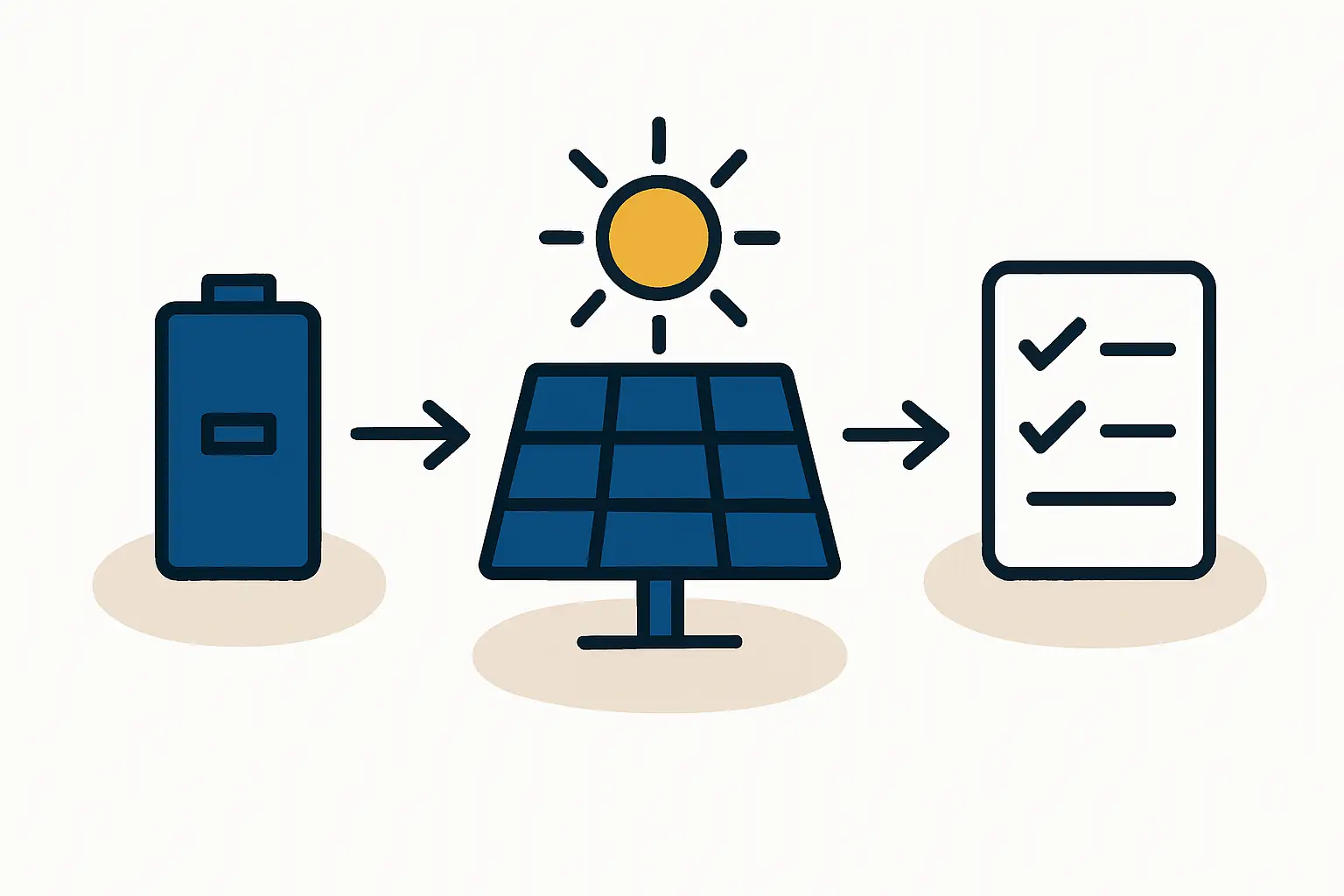
This directly reduces the high upfront cost of procuring a complete solar module production line. For a typical 50 MW factory, equipment costs can make up a major portion of the initial capital outlay. Eliminating tariffs on items such as stringers, laminators, and cell testers significantly lowers the overall investment required for a solar panel factory and improves its financial metrics from day one.
Elimination of Capital Gains and Municipal Taxes
Two additional exemptions further enhance the financial landscape:
-
No Capital Gains Tax: Investors are fully exempt from capital gains taxes. This is a crucial consideration for long-term strategic planning, allowing them to retain the full value realized from a future sale of the business or its assets.
-
No Municipal Taxes: The exemption extends to all municipal taxes for the 15-year period. Though often smaller than federal taxes, these can accumulate into significant operational costs. Their removal lowers overhead and improves profitability.

Strategic Advantages Beyond Direct Financial Benefits
While the tax incentives are the central pillar of the law, El Salvador’s proposition is strengthened by other strategic factors.
A Favorable Geographic Position
Located in the heart of the Americas, El Salvador offers a logistical advantage for serving markets across Central, North, and South America. Its port infrastructure and road networks provide a solid foundation for an export-oriented manufacturing strategy. For companies planning to supply the growing demand for solar energy in the region, this central location can translate into reduced shipping times and costs.
Streamlined Processes and Government Support
This type of legislation is typically accompanied by an administrative framework designed to facilitate investment. While due diligence is always necessary, the law signals a pro-business stance aimed at reducing bureaucratic hurdles for new market entrants. This can simplify company registration, permitting, and operational setup.
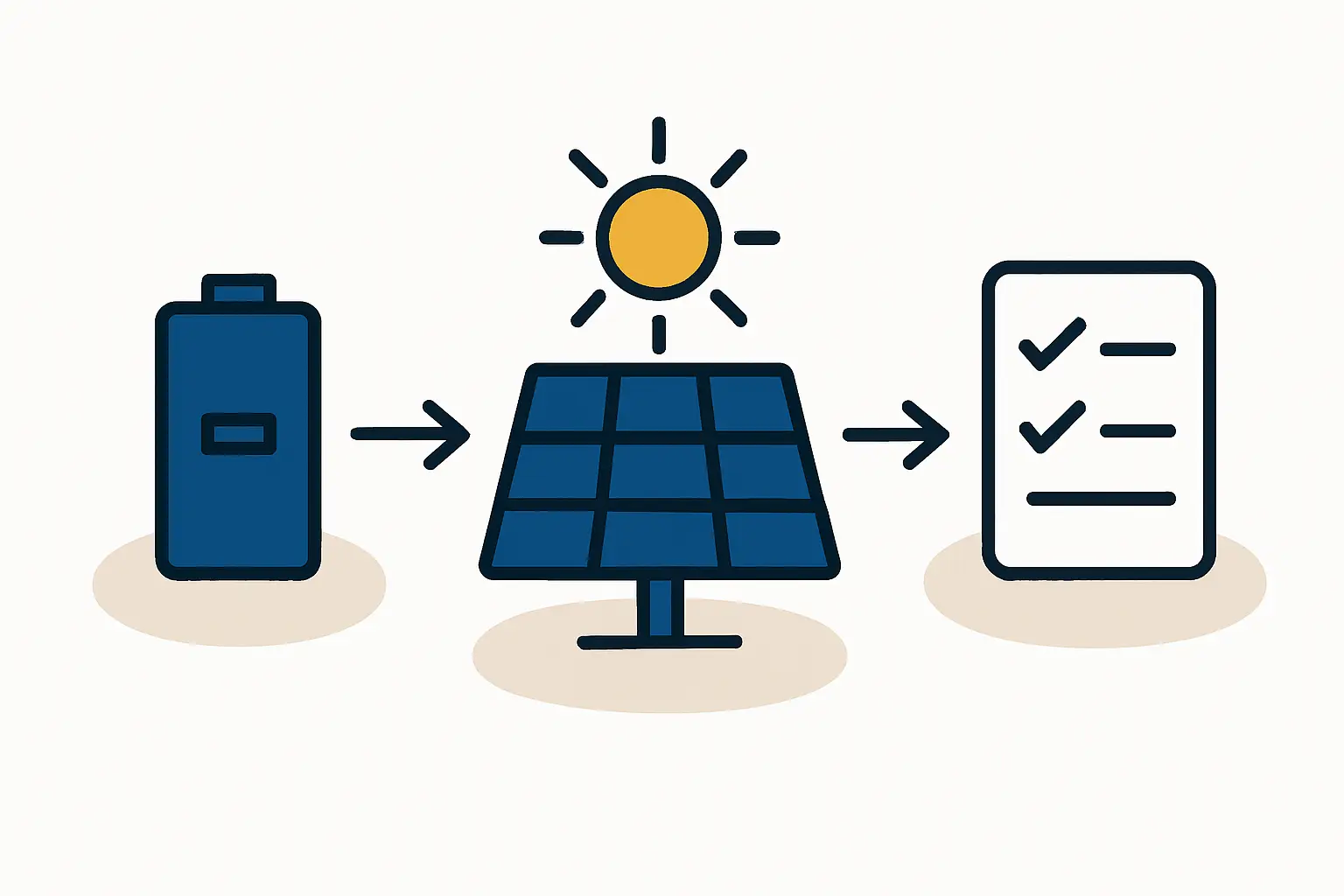
Practical Considerations for Due Diligence
While the incentives offered under this law are compelling, they are just one part of a comprehensive evaluation. Any serious investor must integrate these benefits into a detailed feasibility study.
A thorough business plan for solar manufacturing remains essential. This plan should model the financial impact of these exemptions while also assessing other critical operational factors, such as local labor availability and skills, the stability of the electrical grid, domestic and regional supply chain logistics, and the specific procedures for qualifying for the incentive program. As experience from J.v.G. turnkey projects shows, understanding these local conditions is as important as analyzing the fiscal benefits.
Frequently Asked Questions (FAQ)
What specific solar-related activities qualify under this law?
The law targets technology manufacturing, including the production of solar panels, photovoltaic cells, inverters, batteries, and other key components of solar energy systems.
How long is the tax exemption period?
The primary exemptions, including those for income tax, customs duties, and municipal taxes, are granted for 15 years from the date the business qualifies.
Does this law apply to existing businesses in El Salvador?
The legislation primarily targets new investments and qualifying expansions of existing operations into designated technology sectors. Specific requirements for existing businesses should be verified with the relevant authorities.
Are there requirements for local employment or investment thresholds?
While the law’s main focus is on fiscal incentives, any investment proposal would naturally be strengthened by a plan that includes training and employing a local workforce. The specific qualification criteria should be reviewed as part of the formal application process.
Conclusion and Next Steps
El Salvador’s Law for the Promotion of Innovation and Manufacturing of Technologies establishes a powerful, low-tax framework that directly addresses the primary financial concerns of investors in the solar manufacturing sector. The complete exemption from income tax, customs duties, and capital gains tax for 15 years creates a uniquely favorable environment for establishing a profitable and competitive operation.
For entrepreneurs and companies considering entry or expansion in the Americas, this legislation warrants serious consideration. The logical next step is to conduct detailed financial modeling to quantify the impact of these incentives on a specific project. This data-driven approach will provide the clarity needed to make a sound investment decision.





